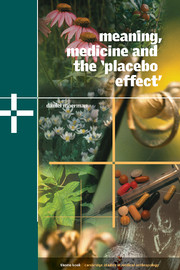Book contents
- Frontmatter
- Contents
- List of figures
- List of tables
- Acknowledgements
- Introduction: “Pickle ash” and “high blood”
- Part I The meaning response
- Part II Applications, challenges, and opportunities
- Part III Meaning and human biology
- 12 The extent (and limits) of meaning
- 13 Conclusions: many claims, many issues
- References
- Index
13 - Conclusions: many claims, many issues
Published online by Cambridge University Press: 05 June 2012
- Frontmatter
- Contents
- List of figures
- List of tables
- Acknowledgements
- Introduction: “Pickle ash” and “high blood”
- Part I The meaning response
- Part II Applications, challenges, and opportunities
- Part III Meaning and human biology
- 12 The extent (and limits) of meaning
- 13 Conclusions: many claims, many issues
- References
- Index
Summary
I have made many claims in this book. Some of them are quite straightforward, while others are more anomalous. Some have lots of good evidence, while some have less. Some issues seem clearly nailed down, while for others I have said that “more research is needed.” Now I want to summarize the whole picture of the meaning response, and indicate what we need to know most to make this powerful human process more understandable, and maybe even more useful.
People live in rich and complex worlds of their own construction. Whether they are nuclear physicists, Jesuit priests, or members of the Taliban in Afghanistan; British, French or German; Navajo, Seneca, or Maya; in any case, people view the same world in many different ways, making sense of it, making it meaningful in many different ways. It is easy to overstate the case for cultural differences: all societies have families, provide food, speak languages, and share understandings. But the differences remain profound; I would argue, for example, that these differences are far greater and far more important than any genetic variations among human beings. What might appear to an outside observer to be very minuscule differences (e.g., that the bread and wine “are” the body and blood of Christ rather than that the bread and wine “represent” the body and blood of Christ) can be matters of enormous importance (the issue of “transubstantiation” was - indeed still is - probably the most important theological issue in the many disputes of the Protestant Reformation).
- Type
- Chapter
- Information
- Meaning, Medicine and the 'Placebo Effect' , pp. 147 - 155Publisher: Cambridge University PressPrint publication year: 2002



